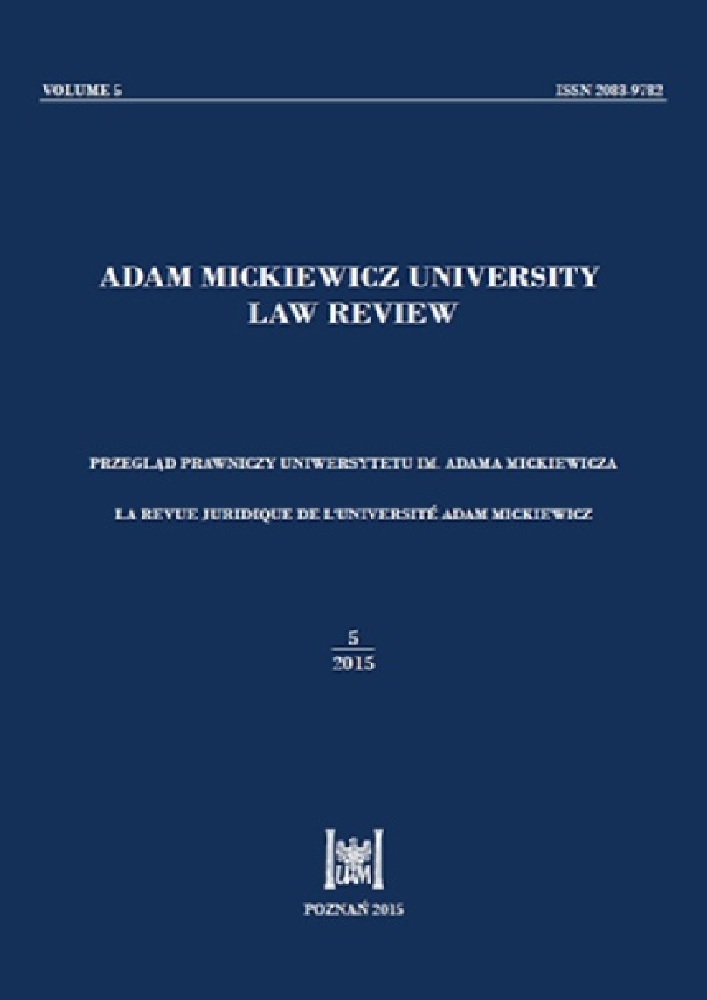Abstract
To sum up, it should be stated that the concept of efficiency should be understood as a quick, effective and rational operation of the participants in the proceedings, taking into account the principles of efficiency and savings of financial resources. The length of proceedings is one of the most acute problems not only of criminal law, but also of the administration of justice in general. The first and foremost reason for such a classification is that the excessive length of proceedings prevents a fair hearing, since it does not respect the constitutional right to have a case heard without undue delay. Secondly, long proceedings generate high costs, an issue particularly important when these costs are borne by the State Treasury and thus not by the convict whose culpable behavior has caused them to arise.The issues of efficiency of criminal proceedings and their costs are inextricably linked. Furthermore, it establishes that the efficiency of criminal proceedings determines the level of generated costs. The research shows that the quality of the proceeded cases depends on the financial outlays and that the costs indicated by the procedural authorities do not correspond with those actually incurred. In conclusion, it should be pointed out that financial aspects fall within the scope of the regulatory impact assessment and constitute a priority when im-plementing new legal provisions, in direct relation to the economic analysis of law and the efficiency and costs of ongoing proceedings.
Funding
This research was funded by National Science Centre, Poland, 2015/17/N/HS5/00438.
References
Apanowicz, Jerzy. Metodologiczne uwarunkowania pracy naukowej. Prace doktorskie. Prace habilitacyjne. Warszawa, 2005.
Cooter, Robert, and Thomas Ulen. Ekonomiczna analiza prawa. Warszawa, 2011.
Frankfort-Nachmias, Chava, and David Nachmias. Metody badawcze w naukach społecznych. Poznań, 2011.
Klejnowska, Monika, and Hofmański, Piotr et. al. System prawa karnego procesowego. Tom XVIII. Koszty procesu w sprawach karnych, edited by Monika Klejnowska, chief editor Piotr Hofmański. Warszawa, 2018.
Kulesza, Cezary. Efektywność udziału obrońcy w procesie karnym w perspektywie prawnoporównawczej. Warszawa, 2005.
Momot, Stanisław, and Andrzej Ważny. “Postępowanie przyspieszone w praktyce.” Prokuratura i Prawo, no. 11–12. 2009: 110–126.
Orfin, Agnieszka. “Czy polski proces karny jest kosztowny? Kilka uwag o sprawności postępowania karnego i jego kosztach.” In Proces karny w dobie przemian. Przebieg postępowania, edited by Sławomir Steinborn, and Krzysztof Woźniewski. Gdańsk, 2018: 539–548.
Orfin, Agnieszka. “Should Money Be the Issue in Criminal Proceedings? Some Remarks from the Perspective of Law and Economics.” Polish Yearbook of Law & Economics 6. 2015: 131–151.
Orfin, Agnieszka. Sprawność postępowania karnego a jego koszty. Warszawa, 2020.
Pikulski, Stanisław, and Jarosław Szczechowicz. “Ludzki wymiar prawa a przewlekłość postępowania sądowego.” In Księga jubileuszowa Profesora Tadeusza Jasudowicza, edited by Jan Białocerkiewicz, Michał Balcerzak, and Anna Czeczko-Durlak. Toruń, 2004.
Rosiek, Ksymena. “Skuteczność – przegląd definicji.” Zeszyty Naukowe Uniwersytetu Ekonomicznego w Krakowie, no. 771. 2008: 125–134.
Wiliński, Paweł. “Criminal procedure.” In Foundations of Law. The Polish Perspective, edited by Wojciech Dajczak, Tomasz Nieborak, and Paweł Wiliński. Warszawa 2021: 417–468.
Wiliński, Paweł. “Koszty procesu.” In Polski proces karny, edited by Paweł Wiliński. Warszawa 2020: 775–784.
Witczak, Hubert. “Problemy naukowe.” In Podstawy metodologiczne prac doktorskich w naukach ekonomicznych, edited by Maria Sławińska, and Hubert Witczak. Second updated edition. Poznań, 2012
License
Copyright (c) 2022 Agnieszka Orfin

This work is licensed under a Creative Commons Attribution-NoDerivatives 4.0 International License.

